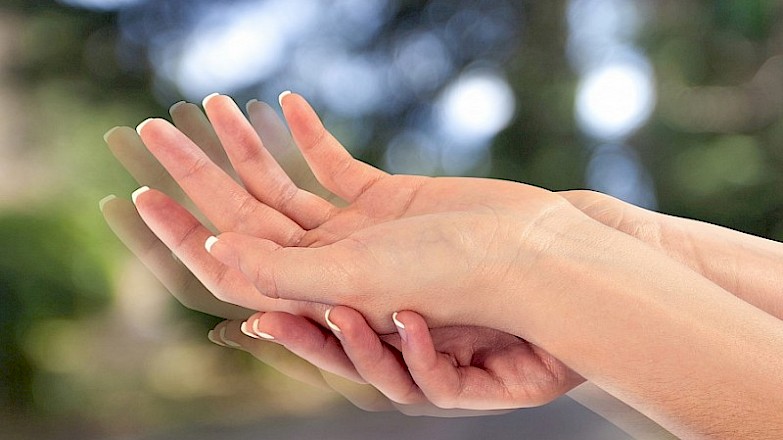Dystonia and Medical Cannabis

Dystonia is a lifelong condition which causes uncontrollable and often painful spasms. Dystonia can also cause uncontrollable blinking, shaking and can cause the body to twist into unusual positions. Whilst Dystonia cannot be cured, the symptoms can be controlled with medication. Here we take a look at how medical cannabis has been found to help with Dystonia symptoms.
Typically, Dystonia is treated with injections of botulinum toxin directly into the affected muscles which must be repeated every 3 months. Tablets or injections with a medicine that aims to relax the muscles in a larger part of the body or a type of surgery called deep brain stimulation. Non-medical options include physiotherapy and occupational therapy.
However, studies are beginning to take place to look at medical cannabis and the affects this can have on Dystonia. On the 17th September 2021, a new study*on Dystonia was presented as part of theInternational Congress of Parkinson’s Disease and Movement Disorders Virtual Congress. The study aimed to examine the effect of medical cannabis on Dystonia muscle activity and pain in patients with the Israeli Ministry of Health (MOH) approved cannabis license. The results were promising and revealed that consumption of medical cannabis in adults could alleviate the pain associated with Dystonia, and most interestingly, have a positive impact on sleep.
The Study
Conducted on 11 women and 12 men, researchers from Tel Aviv University contacted 23 patients with an approved license from the MOH to assess scale, demographics, cannabis use and treatment effects. Participants in the study reported using cannabis for a maximum of 3.5 years and a minimum of at least 1.5 years. The participants revealed that 48% used cannabis oil extract, whilst 47.8% smoked dried buds. A further 8.7% used a combination of the two.
The Results
Most notably out of the final results, 70% of participants said they found an improvement in their sleep. As stated by the Dystonia Medical Research Foundation, patients with Dystonia often experience insomnia and problems with sleep which thus has a knock-on effect on issues such as anxiety and depression. The results on sleep after using medical cannabis is a truly significant find for Dystonia patients.
The self-report efficacy of medical cannabis was 3.3 out of 5 and 3.7 for those experiencing pain and 3.6 out of 5 said it improved their quality of life.
Those who said they experienced an improvement found that smoking medical cannabis was more effective then consuming oil and also reported using a higher THC dose.
It must be noted that there were some adverse side-effects from the study which included dry mouth, worsening mood, anxiety and hallucinations. More significant side effects resulted in some participants stopping medical cannabis. As with all medication however, not every option will be suitable for every person which is why studies like this are vital.
The researchers of the study concluded:
“Medical Cannabis seems to improve symptoms of Dystonia and related pain. A higher dose of THC and smoking rather than sublingual oil are significantly more efficacious.”
Why does Cannabis help?
Medical cannabis contains 2 main cannabinoids that activate the CB1 an CB2 receptors of the endocannabinoid system. The tetrahydrocannabinol (THC) and cannabidiol (CBD) which help to regulate the inhibitory and excitatory neurotransmitters necessary to diminish muscle tremors which is often associated with Dystonia.
Whilst the number of participants in this study was relatively small, the results are certainly promising and prove that there is more research required into the use of medical cannabis on Dystonia, but the findings are a step in the right direction.
The are members of the The Medical Cannabis Directory with experience working with chronic pain and sleep related issues. Some specialists also have experience working with movement disorders. If you suffer from dystonia you may be able to seek further help and advice relating to potential treatments with medical cannabis.
*Anis S, Faust-Socher A, Sverdlov D, et al. A real-life study of medical cannabis effect on adults with dystonia. Presented at: MDS Virtual Congress 2021; September 17-22, 2021. Poster 93.